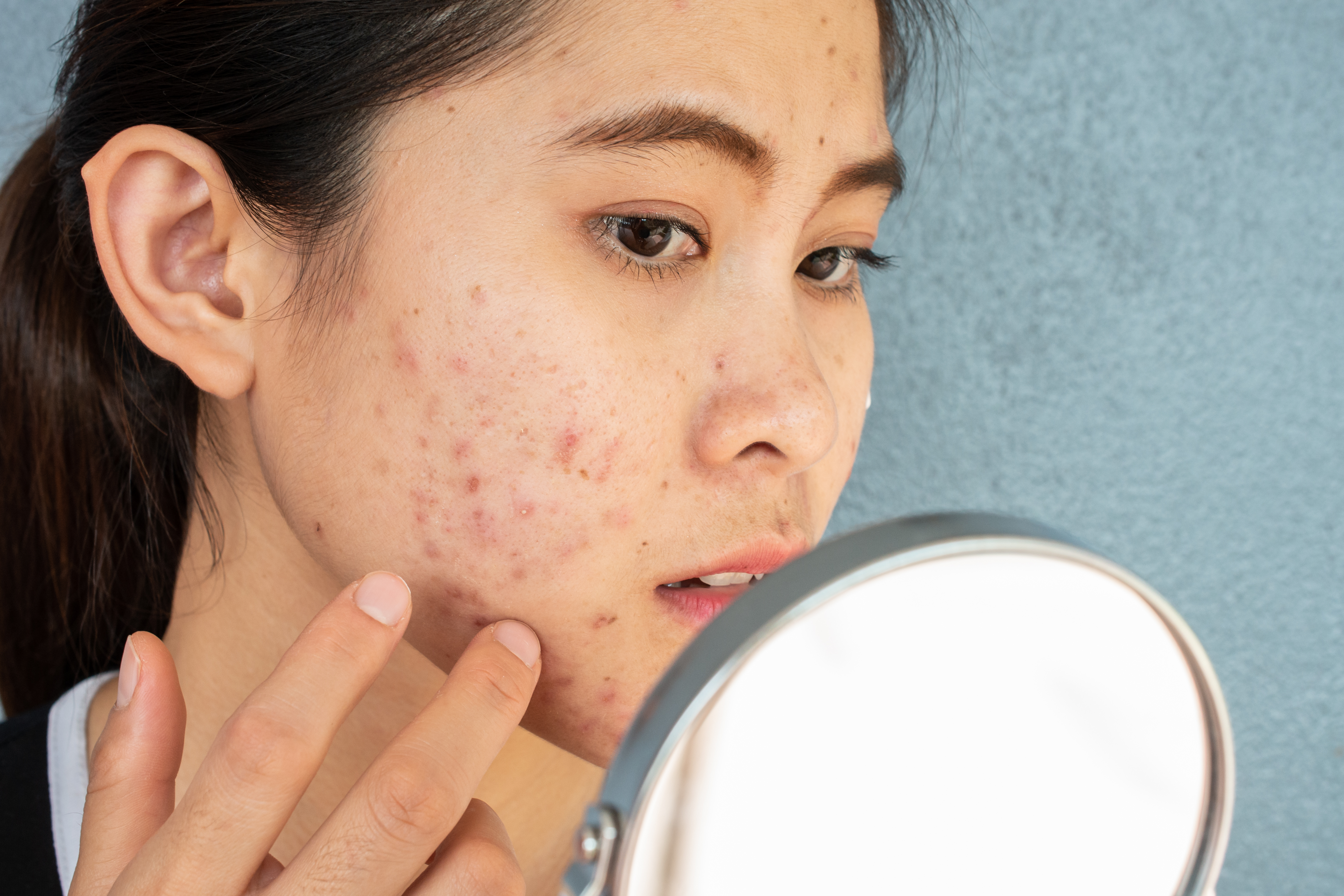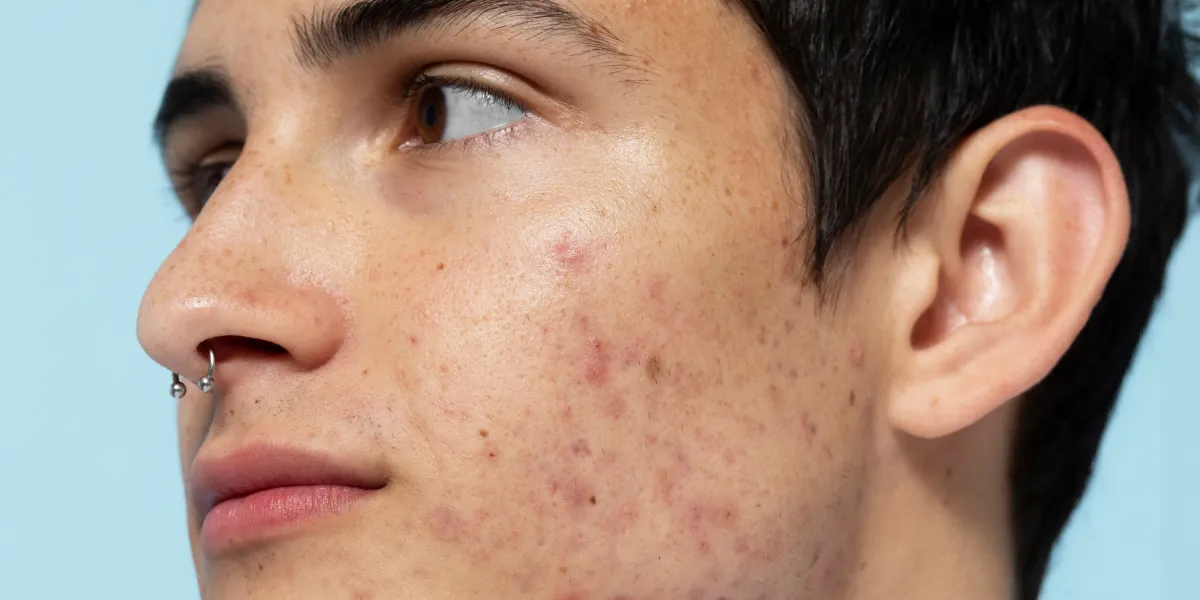The best time to take acne medication is typically in the evening. Consult your healthcare provider for a personalized schedule.
Navigating the complexities of acne treatment can feel overwhelming, but understanding the optimal timing for medication can make a significant difference. Most topical acne treatments, such as retinoids, are recommended for nighttime use due to their photosensitive nature and the skin’s increased ability to absorb treatment while you sleep.
On the other hand, certain oral medications may be taken during the day or night, depending on their formulation and potential side effects. It’s essential to follow a routine that aligns with your specific medication instructions and lifestyle. Establishing a consistent treatment schedule not only maximizes the effectiveness of the medication but also contributes to healthier skin habits. Always remember that consistency is key, and a conversation with a dermatologist can provide tailored advice to enhance your acne treatment plan.
Acne Medication Timing: The Key To Effective Treatment
Battling acne requires more than just choosing the right medication. The timing of when you take your acne medication can influence how well it works. Let’s dive into how time-sensitive treatments can maximize your skin’s health.
The Role Of Circadian Rhythms In Skin Health
Your body’s circadian rhythms play a vital part in skin repair and renewal. Aligning acne treatment with these rhythms can boost medication efficacy. Nighttime, for instance, is key for skin recovery. Certain treatments might be more beneficial when taken before bed.
How Dosage Schedules Influence Acne Treatment Success
Consistent dosage schedules are crucial for acne medication success. Medications work best when taken at regular intervals. This maintains stable drug levels in the body, fighting acne more effectively.
| Medication Type | Recommended Timing |
|---|---|
| Topical Retinoids | Evening (to reduce sun sensitivity) |
| Antibiotics | As prescribed (often twice daily) |
| Isotretinoin | With meals (to improve absorption) |
To ensure treatment success, follow the prescribed schedule and adjust timings if necessary with a healthcare provider’s guidance. This personalized approach can lead to clearer skin.
The Different Types Of Acne Medications
Dealing with acne can often feel like a battle. Knowing what medications to use is crucial. Acne treatments come in different forms. Some you rub on your skin. Others you take by mouth. Each type has a best time for use. This ensures they work well. This post will guide you through the best times to apply or consume these acne fighters.
Topical Treatments And Their Application Times
Topical treatments are creams, gels, or lotions. You put them directly on your skin. They come in different strengths. Some fight the bacteria that cause acne. Others help with swelling or unclog pores. Let’s talk about when to apply these treatments.
- Retinoids: Use at night. They can make skin sensitive to the sun.
- Benzoyl Peroxide: Apply in the morning or evening. It can bleach fabric, so be careful.
- Salicylic Acid: Use twice a day. It helps unclog pores.
- Antibiotic Creams: Apply as directed, usually twice a day.
Oral Medications And Optimal Timing For Intake
Oral medications for acne work from the inside. They can target hormones or fight bacteria. The timing for these pills is also important. Here’s a quick guide:
| Medication Type | Best Time to Take |
|---|---|
| Antibiotics | With a meal to avoid stomach upset |
| Isotretinoin | With a main meal, as fats help absorption |
| Birth Control Pills | Same time each day for consistency |
| Anti-androgen Agents | As prescribed, usually once a day |
Remember to follow your doctor’s instructions. They know what works best for your body. With the right timing, acne medications can do their job better. Clear skin can be just around the corner!
Morning Or Night: Tailoring Acne Treatment To Your Routine
Deciding whether to apply acne treatment in the morning or at night can puzzle many. Your skin’s needs and daily routine are unique. This post explores the best time for acne treatment. Let’s tailor your skincare to fit your life.
Benefits Of Morning Treatment: Starting The Day Right
Morning treatments can set the tone for healthy skin all day. Here’s how:
- Control oil production: Morning applications may keep skin matte.
- Enhance protection: Some treatments shield against daily pollutants.
- Boost effectiveness: Daytime formulas often work well with sunscreen.
Include an acne-fighting step in your AM routine. Your skin will thank you.
Advantages Of Evening Application: Nighttime Skin Rejuvenation
At night, your skin enters repair mode. Evening treatments support this natural process.
- Intense healing: Skin heals faster overnight, making it prime time for treatment.
- Greater absorption: Active ingredients penetrate better without makeup.
- Reduced irritation: Potent treatments are less likely to irritate when you’re resting.
An evening routine with targeted acne treatment can work wonders. It rejuvenates your skin while you sleep.
:max_bytes(150000):strip_icc()/VWH-MichelaButtignol-TreatingAcneWithDoxycycline-15837-4000x2700-907e91adce8d442babb2645dd55b983b.png)
Credit: www.verywellhealth.com
The Impact Of Food Intake On Acne Medication Absorption
Understanding how and when to take acne medication is crucial for its effectiveness. The interaction between food and medication can significantly impact absorption. This determines how well the medication works. Let’s explore the relationship between meal times and acne treatment efficacy.
Taking Medication With Meals Vs. On An Empty Stomach
Acne medications can be sensitive to the presence of food in your stomach. This can alter their absorption rate. Some medications require a full stomach for optimal absorption, while others work best on an empty stomach. Always check the prescription label or consult with a healthcare provider.
- Fed State: Food may slow the absorption of certain acne meds. This can reduce side effects.
- Fasting State: An empty stomach may increase the absorption of specific treatments. This can make them more effective.
Specific Foods That Can Enhance Or Hinder Medication Efficacy
Certain foods can interact with acne medication, either enhancing or reducing its effectiveness.
| Food Type | Effect on Medication |
|---|---|
| Dairy Products | May hinder absorption of some antibiotics |
| High-Fat Meals | Can increase absorption of some medications |
| Fibrous Foods | May delay medication absorption |
| Acidic Foods | Can alter the stomach pH and impact medication effectiveness |
Always pair your medication with the right food. This ensures the best outcome for your acne treatment plan.
Consistency And Compliance In Acne Medication Schedules
Consistency and compliance are crucial in managing acne effectively. Following a prescribed medication schedule ensures that treatment works as intended. Let’s explore how regular dosing and adherence to routines can make a significant difference in acne treatment outcomes.
The Importance Of Regular Dosing
Acne medications need time to work. Regular dosing helps maintain steady medication levels in the body. This consistency fights acne more effectively. Skipping doses can lead to treatment setbacks and prolonged skin issues.
Strategies To Maintain A Consistent Medication Routine
Life gets busy, but maintaining a medication routine shouldn’t fall by the wayside. Here are some strategies to stay on track:
- Set alarms on your phone as reminders.
- Use a daily planner or calendar to mark each dose.
- Keep medication in a visible place as a visual cue.
- Pair taking medication with a daily habit, like brushing teeth.
Remember, a consistent approach to acne treatment can lead to clearer skin and improved confidence.
Combining Acne Treatments: Timing Interactions
When battling acne, finding the right combination of treatments can be a game-changer. Combining Acne Treatments: Timing Interactions is crucial for effectiveness and safety. Let’s explore the importance of timing when using multiple acne products.
Sequential Use Of Different Acne Products
Using acne treatments in sequence can maximize their benefits. Here’s a guide:
- Morning routine: Gentle cleanser, followed by a medicated product, and sunscreen.
- Night routine: Cleanser, acne treatment with active ingredients, and a moisturizer.
Allow each product to absorb fully before applying the next. This approach prevents ingredient interference.
Avoiding Adverse Reactions Between Acne Medications
Adverse reactions can occur when active ingredients mix on the skin. To prevent this:
- Read labels to understand active ingredients.
- Space out applications of treatments that contain strong actives.
- Consult a dermatologist for a tailored treatment plan.
Understanding the interactions between acne treatments ensures a safe and effective skincare routine.
Special Considerations For Hormonal Acne Treatments
Dealing with hormonal acne requires a nuanced approach. Hormones fluctuate, influencing acne severity. Special considerations come into play when treating this condition. It’s not only about what treatments to use, but also about when to use them. Timing can significantly impact the effectiveness of hormonal acne treatments.
Aligning Treatment With Menstrual Cycle
Understanding your menstrual cycle is key when battling hormonal acne. Estrogen and progesterone levels shift throughout the cycle, affecting skin condition. For many, breakouts worsen in the week before menstruation. Aligning acne treatments with your cycle can help manage these flare-ups.
- Track your cycle. Note days when acne worsens.
- Adjust treatment intensity. Increase use of topical treatments as needed.
- Consult a dermatologist. They can tailor acne treatment to your cycle.
Morning Vs. Evening: Hormonal Medication Timing
Hormonal acne medications can be sensitive to the time of day they are taken. Cortisol levels, for example, are higher in the morning. This can influence the skin’s oil production and, consequently, acne severity. Taking certain medications in the morning or evening can optimize their effectiveness.
| Medication | Morning | Evening |
|---|---|---|
| Oral contraceptives | May help regulate hormone levels throughout the day | Can be taken to reduce morning hormone surges |
| Retinoids | Not recommended due to sunlight sensitivity | Best used at night for optimal absorption |
| Anti-androgens | Timed with cortisol levels | Evening doses can help with overnight hormone regulation |

Credit: wishtrend.com
Monitoring Acne Progress And Adjusting Medication Timing
Understanding when to take acne medication is crucial for clear skin. Monitoring acne progress and adjusting medication timing can lead to better outcomes. A treatment plan that adapts to the skin’s response ensures maximum effectiveness.
When To Assess Treatment Effectiveness
Regular check-ins are key to tracking acne treatment success. Noting changes every few weeks can show how well the medication works. Look for signs of improvement like fewer breakouts or reduced redness.
- Mark your calendar for consistent progress evaluations.
- Compare before and after photos to visually assess changes.
- Consult with a dermatologist if no progress is seen after 6-8 weeks.
Making Adjustments To Medication Schedules Based On Results
Adjusting medication timing might be necessary. If the skin improves, reducing frequency may be an option. For persistent acne, increasing application could help.
| Initial Response | Action |
|---|---|
| Positive Change | Continue current schedule or consult for dosage adjustment. |
| No Change | Consider different medication or application times. |
| Worsening Acne | Seek immediate advice for treatment alterations. |
Remember to never alter medication without professional advice. A doctor can help tailor the schedule for optimal results.
Expert Recommendations And Patient Experiences
Discovering the perfect time to take acne medication can be a game-changer for your skin. Let’s explore what experts suggest and what has worked for real people.
Dermatologists’ Advice On Optimal Timing
Timing is crucial when it comes to acne treatment. Dermatologists stress the importance of consistency. Most topical treatments work best when applied at night. This is due to lower sun exposure and the skin’s natural repair cycle. Oral medications, on the other hand, often require adherence to specific times. For instance, some antibiotics should be taken with meals to reduce stomach upset, while others are more effective on an empty stomach.
Here’s a quick guide:
- Topical Retinoids: Apply before bed to enhance skin cell turnover.
- Antibiotics: Follow your doctor’s instructions, usually with food.
- Isotretinoin: Best taken with a high-fat meal for optimal absorption.
Real-life Success Stories And Timing Tips
Real stories often shed light on what truly works. Many patients find their stride through trial and error. Success hinges on finding a routine that fits one’s lifestyle and sticking to it.
Key takeaways from these stories include:
| Time of Day | Tip |
|---|---|
| Morning | Use a gentle cleanser and a non-comedogenic moisturizer. |
| Evening | Apply prescribed treatments after washing your face. |
| Bedtime | Consider a spot treatment if needed. |
Remember, consistency and patience are your allies in the fight against acne. Keep a diary to track your progress and adjust timings as necessary.

Credit: www.apothecopharmacy.com
Frequently Asked Questions
When Should I Take Acne Pills?
Take acne pills as prescribed by a dermatologist, typically after topical treatments and lifestyle changes fail to improve severe or persistent acne. Always follow the doctor’s dosage and timing instructions.
What Is The Best Pill For Acne?
The best pill for acne varies per individual, but isotretinoin is highly effective for severe cases. Consult a dermatologist for a tailored treatment plan.
How Long Does It Take For Acne To Kick In?
Acne development can vary, typically emerging within a few days to weeks after pore blockage. Hormonal changes can also trigger outbreaks, often over a similar timeframe.
When Is The Best Time To Apply Acne Treatment?
The best time to apply acne treatment is after cleansing your skin at night, allowing it to work overnight.
Conclusion
Determining the optimal time to address acne is pivotal. Your skin type and regimen influence this decision significantly. Consult a dermatologist for personalized advice. Remember, consistency is key for clearer skin. Start your journey to healthier skin today.

